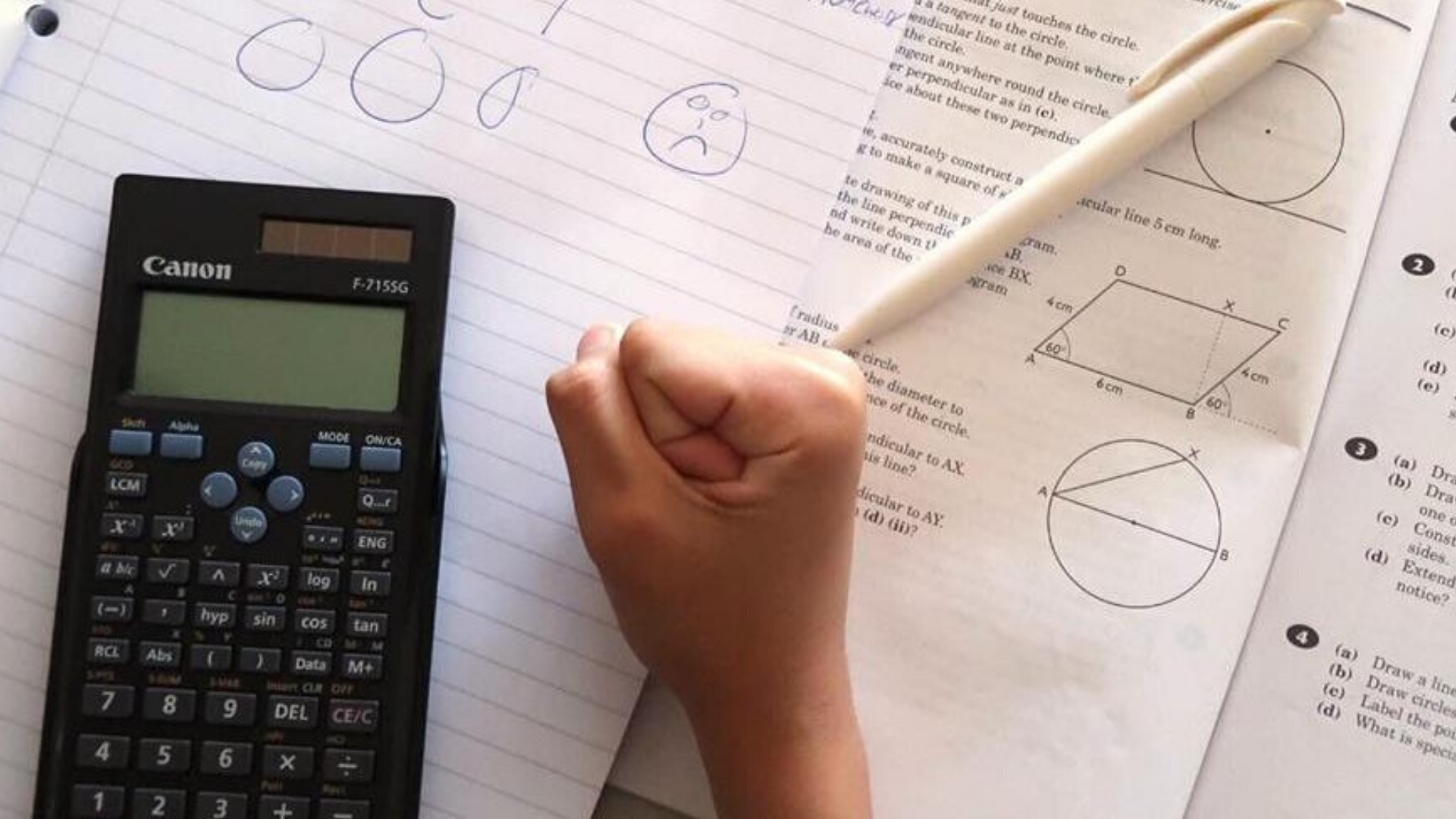Ask an Expert: Homework wars & how to end them
Recently on the Mama Manual Facebook page, I announced that social worker Steve Libreri would be featuring in the next ‘Ask an Expert’ blog post. The subject – homework – seems to be a sensitive topic with a lot of mums (myself included!)
I was curious what Steve would come up with. I was very pleasantly surprised to see that Steve shares our feelings 100%. His answers are so practical, so real, and so tactful, I read his interview twice in a row!
Mamas, this is brilliant…read on!
-
Whether we like it or not, homework is part and parcel of school & education. How can we deal with our feelings whilst ensuring that we do what is best for our children?
This is a tricky question. I too have a few reservations about how easy we tend to accept the education system and anything it dictates is necessary. Homework is one of those things. I find that many parents tend to overreact to the idea of homework. Many become quite anxious because of it.
We have been told many a time that homework is a crucial part of education and without it children will simply not learn. Unfortunately, homework (apart from having the potential to support learning) is also the source of anguish and anxiety – in BOTH children and parents. Anxiety is a terrible motivator and it has
a tendency to affect attention. This means that because of anxiety, children learn less. The tension in a household can reach such high levels that this small activity becomes a huge mess. As a result, parents and children argue, relationships are shaken and, in the end no real learning occurs.
I would recommend people to take time to reflect about this notion that homework is crucial. Statistically speaking, education systems which provide little or no homework (or start homework at a more advanced stage of the education) are the strongest. Ironically, those who adopt the homework system as we do in Malta are not considered to be the most proficient. So, I encourage people to look at homework for what it is – a simple activity that is there to support learning. Learning cannot flourish in stressful circumstances (although a small degree of stress is actually very helpful). Obsessing about it actually slows the investment it is trying to make. So relax. -
Mums mentioned a lot of disadvantages to homework, such as having no free time, being boring after a long day at school and causing stress. Can you suggest ways to deal with the downsides?
I too have the opinion that homework is excessive. We must keep in mind that the “little bit of homework” that can take about one and a half hours to complete (sounds little doesn’t it), accumulates with another six to eight hours of schooling that precede it. Who, in this world, enjoys ten hours of tedious clerical work every day? Yet, despite this opinion, we are almost forced to accept that failure to do the homework, inevitably results in lower grades that affect the overall grade at the end of the year. So, I can understand why parents are so strict about it. No one is really given a choice about it!
I had some parents actually confide the feeling of expectation by the school for their children to do the homework – it’s almost as though if the child does not do the homework, then the blame shifts onto the parent who did not do their job!
I feel that as parents we should talk about our experiences at home to try and influence the education system to relax on the amount of work given. Much improvements have been registered along the last years in response to what families shared at a macro level. In the words of Sir Ken Robinson, we need a revolution in schools, to try and find a system that truly celebrates the potential of the mind and facilitates learning and not memory. -
What is the best way to approach homework with older kids? Do we admit that it is a little bit on the excessive side, but still needs to done? Or do we take a different approach altogether?
I find that an empathetic response with our children always helps. If we ignore their feelings about homework, then we can surely expect a frustrated reaction in return. When we are able to show that we understand their anguish, we sort of help the children diffuse some of the frustration and perhaps facilitates the process of finishing the work with some peace.
Our kids need our support, not only in homework, but also in regulating their emotions. This is an opportunity to talk about feelings of frustration and anguish. -
More often than not, children come home tired after a long day at school. Any tips to help children concentrate so we can get homework out of the way and enjoy some time as a family?
All children operate differently. Some benefit from beginning their work immediately after they arrive. Some do better after a small break. I’ve worked with children who do better if they start their work at 1930hrs! All children are different and have different preferences.
If we are able to find these preferences with them, then we would have found the sweet spot for homework. Another technique I find absolutely fantastic is to assign homework time. Too many parents operate with the idea that homework should extend for as long as it takes for the child to complete the homework. The absence of a finish time does two things. It provides no structure, and it accentuates the frustration, as the child is unable to see an end to this misery! I think that there should be a clear finish time – say, at 1630hrs we close the homework whether it is finished or not. If it is not finished, then the child can go to school with an incomplete homework.There are a few reasons why I suggest this.
The very first reason, which I consider a priority, is that schooling is but one thing in life.
I acknowledge its importance, but I can never accept the idea that it should take over life. There are other very relevant things to do in life, such as spending time with loved ones, playing, re-energising and quite simply – doing nothing. Every machine on this earth requires downtime to operate at maximum efficiency.
Second, I find that this technique also teaches responsibility. If a child has to go to school with an incomplete homework, and therefore face the music at school, then he may pick up a lesson which says “next time, I would better not linger in doing my homework”.
I usually find this method to speed up the process and make the experience all the more bearable for everyone. -
Any tips for dealing with the child who stops doing his homework every 5 minutes because he is thirsty, hungry, needs to visit the toilet, or comes up with any other ten excuses to put off doing his homework?
These are lovely excuses children use to steal a little bit of break-time. Again, it is important for us to attune to the language of our children.
Susan Stiffleman, in her book Parenting without Power Struggles mentions that children give messages that have a head and a body. The head of the message is the part of the message which is noisy – it is the verbal part. The body is the part of the message which is concerned more with the feelings occurring in the child.
Say for instance, a child throws a tantrum when mummy leaves the child at school. The head is the crying; the body is the feeling of stress or fear the child experiences upon separation from the mother. The important part is to listen intently to the body of the message.
The frequent breaks during homework time are an indication of tediousness, boredom and frustration. We can talk about that frustration and in that way we can support the child in becoming more emotionally intelligent. Trying to force children to sit down will not help. On the contrary, let us try to incorporate these breaks in a functional method that can coexist in homework time. For instance, we can decide to do problem one in the kitchen and problem two in the living room. And to make it more fun, we can crawl from the kitchen to the living room. Also, make sure to incorporate the time limit for homework – this usually helps. -
What advice would you offer to mums of older kids, say anywhere from 12 to 15, whose kids state that they hate school, homework and studying? In one case a mum said that her child is very bright and she feels it is such a waste for her not to dedicate more time to her education. On the contrary, any advice to mums of kids who struggle on a daily basis?
Many kids hate school, but all kids enjoy learning.
The problem is that the school system has a poor record of using engaging methods that augment learning. It is in the evolutionary nature of children to be curious. When I say children – I mean everyone, even adults. We are naturally wired to be curious and have a thirst to learn.
The problem is that this curiosity is driven by a need to expand on information that is useful for us. School dictates a curriculum that is sometimes not appealing and promises little return on investment for life.
It is my experience that many kids have to endure studying and learning, instead of enjoying it. It also has to do with the method of studying. Our education system has imposed students to study through reading and writing. The truth is that different people learn in different ways. Some flourish through reading, because their attention is lit on during a good read. Some, like myself, do better through experiential experiences. I tend to understand better if I am at a museum or if I can try things. Documentaries work wonders. Websites that allow me to interact with the content help a great deal.
I encourage parents to try different methods with their kids, even older ones to receive information that they need to finish their homework. The internet offers an excellent opportunity for learning if used well. Many parents are actually vigilant of sites such as YouTube and the likes. However, and this comes from experience, children have learnt some of the most challenging topics that could not be internalised in school by watching a mere 15 minutes worth of youtube videos about the subject. -
Staying on the topic of older kids, how can we motivate them to do their best everyday after a long day at school ? We all know that being in school is no easy feat, and copious amounts of homework, along with revision and projects is a huge challenge for any teenager.
Doing their best requires us to understand what that really means. I actually believe that we live in a society that is too obsessed with education. I am not saying it is not important – I am saying however that fixating on it as though it is the only important thing in life is a mistake. The most successful adults in today’s world are not the brightest in school. Those who make it offer a good mix of knowledge, social competence, emotional intelligence and a good attitude that is able to adapt to different situations.
Hence schooling is one important thing that should be combined with other important things. If we do not offer a space to talk about feelings, nurture our relationships, offer the chance for some well earned break time and the time for to research or do things which are not related to school syllabus – then we are probably leading them to developing only one skill for the future.
Organisational psychology also teaches us that people ultimately perform better if they are given the chance to do different things they enjoy.
Therefore my advice is to discuss this with the older children. Negotiate a time for homework. Allow freedom for time to do anything the child wants, along with quality time with family members.
I would say this would be the perfect mix.Thank you Steve for your valuable words of advice!
You may find more information about Steve Libreri or get in touch with him by accessing his Facebook page.
HERE’S A LITTLE BIO ON STEVE LIBRERI
![Homework wars - Steve Libreri]() Steve is a social worker specializing in work with families and children. Following his experience in child protection work, he developed a special interest in the parent-child relationship and has since made it his passion. In fact, in the recent years his focus was set on supporting parents in developing more positive strategies to resolve issues at home and also to help parents nurture high functioning and loving relationships with their children.
Steve is a social worker specializing in work with families and children. Following his experience in child protection work, he developed a special interest in the parent-child relationship and has since made it his passion. In fact, in the recent years his focus was set on supporting parents in developing more positive strategies to resolve issues at home and also to help parents nurture high functioning and loving relationships with their children.


 Steve is a social worker specializing in work with families and children. Following his experience in child protection work, he developed a special interest in the parent-child relationship and has since made it his passion. In fact, in the recent years his focus was set on supporting parents in developing more positive strategies to resolve issues at home and also to help parents nurture high functioning and loving relationships with their children.
Steve is a social worker specializing in work with families and children. Following his experience in child protection work, he developed a special interest in the parent-child relationship and has since made it his passion. In fact, in the recent years his focus was set on supporting parents in developing more positive strategies to resolve issues at home and also to help parents nurture high functioning and loving relationships with their children.




Leave a Comment